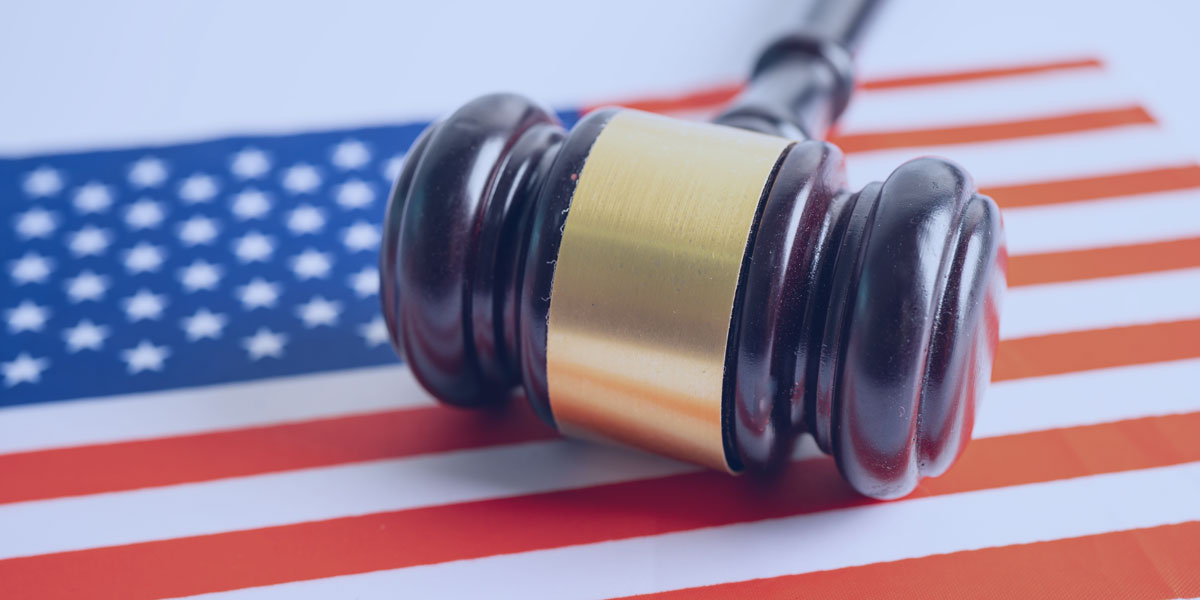It’s been over a decade since the birth of Bitcoin, the first digital asset and the blockchain industry has exploded into a trillion-dollar behemoth. This growth isn’t just a talking point for tech enthusiasts; it’s caught the attention of everyone, from individual consumers to financial institutions and governments. While blockchain technology opens up new avenues for economic development, it also challenges existing compliance programs and regulatory requirements.
According to a report from Chainalysis, financial crimes involving cryptocurrencies reached an alarming $20.6 billion in 2022 alone. This surge highlights the risks lurking in the crypto industry – risks like money laundering and terrorist financing that exploit regulatory blind spots.
So, what does this mean for you? If you’re venturing into the world of digital assets, understanding your crypto compliance obligations isn’t optional; it’s essential. It’s your first line of defense against the financial crimes that are becoming all too common in this space.
Ready to dive in? Let’s unravel the complexities of crypto compliance and explore how you can navigate this evolving landscape safely and legally.
What is Cryptocurrency Compliance?
You might be wondering, “What exactly is cryptocurrency compliance?” Well, let’s break it down. Cryptocurrency was born as an alternative to the traditional financial system, aiming to solve some of its inherent issues. But like anything valuable, it’s not immune to misuse. We’ve seen a rise in fraudulent transactions and other financial crimes in crypto, making compliance more important than ever.
Cryptocurrency compliance is essentially a set of rules and standards that crypto investors and companies must follow. These guidelines are designed to prevent financial crimes like money laundering and ensure the legitimacy of crypto transactions. The rules can vary depending on the specific area of crypto you’re involved in, but the end goal is to reduce fraud and make the crypto industry safer for everyone.
One of the cornerstone elements of crypto compliance is Anti Money Laundering (AML) regulations. These are procedures and legal frameworks aimed at identifying and preventing the misuse of digital assets. AML focuses on three key components: Know Your Customer (KYC), Know Your Business (KYB), and Know Your Transaction (KYT). These components help businesses evaluate and verify users, wallets, and transactions, flagging any suspicious activity.
So, in a nutshell, cryptocurrency compliance is your safety net in the crypto world. It’s what helps you navigate the complexities of this industry while staying on the right side of the law.
Importance of Blockchain and Cryptocurrency Compliance
Let’s dig a little deeper if you’re still on the fence about why cryptocurrency compliance matters. The crypto landscape is like the Wild West; it’s full of opportunities but also rife with risks. Hackers are getting smarter and setting their sights on juicy targets like Decentralized Finance (DeFi) projects. Just in the first quarter of 2022, hackers made off with nearly $1.3 billion in digital assets. That’s a staggering amount, especially considering that the total losses for all of 2021 were $3.2 billion.
So, what’s the silver lining here? Cryptocurrency compliance is that safety net that benefits everyone involved – be it individual investors, crypto companies, or exchanges. Here’s how:
Reducing Financial Crimes
Compliance measures, especially Anti Money Laundering (AML) regulations, have effectively curbed money laundering, terrorism financing, and other illicit transactions in the crypto world.
Legal Safety
Companies can significantly reduce their legal risks by adhering to robust Know Your Customer (KYC) protocols. It’s like having a good insurance policy; you hope you never need it, but you’ll be glad it’s there if you do.
Market Stability
Believe it or not, compliance can actually stabilize the crypto market. News of anonymous transactions or hacks can send prices plummeting. Compliance helps maintain a level of trust that keeps the market more stable.
Transparency
With compliance in place, there’s a clearer record of who’s buying and selling what. This transparency is crucial for both regulatory bodies and individual investors.
Seamless Operations
Given the sheer volume of daily crypto transactions, compliance helps everything run more smoothly. It’s like traffic lights in a busy intersection; they keep things moving while preventing accidents.
Key Concepts in Cryptocurrency Compliance

Understanding the world of cryptocurrency can be complex, but it’s crucial to grasp the foundational elements of compliance that govern this space. Let’s delve into the three key concepts that form the backbone of cryptocurrency compliance. These principles are essential for anyone involved in crypto transactions, as they help ensure a secure and lawful environment.
Anti-Money Laundering (AML) Regulations
First on the list is Anti-Money Laundering, commonly known as AML. These regulations serve as a protective layer to prevent unlawful activities such as money laundering and terrorism financing within the realm of digital assets.
The Financial Action Task Force (FATF) sets the global standards for AML regulations. Other regulatory bodies, like the European Commission and the U.S. Financial Crimes Enforcement Network (FinCEN), have integrated these standards into their own frameworks.
Whether you’re trading on a cryptocurrency exchange, participating in decentralized finance (DeFi), or exploring the NFT marketplace, AML regulations are in place to monitor and flag suspicious activities.
Key AML Rules to Know
Crypto KYC
The Know Your Customer (KYC) protocols are integral to AML regulations. Individuals with a high-risk profile will undergo more stringent KYC checks.
Ongoing Monitoring
Crypto exchanges must continually monitor customer activities to identify and report suspicious transactions.
PEP Restrictions
Politically Exposed Persons (PEPs) are generally prohibited from engaging in crypto transactions.
Sanction Screening
Regular checks ensure customers are not subject to international sanctions.
Know Your Customer (KYC)
The second pillar in the realm of cryptocurrency compliance is Know Your Customer, or KYC for short. This is more than just a formality; it’s a crucial step that helps financial institutions assess the risk level of new customers in terms of financial crimes and cyber threats.
When you sign up on a crypto exchange or any other platform dealing with digital assets, you’ll be asked to provide certain personally identifiable information (PII). This could range from your full name and address to more sensitive data like your social security number.
The platform then cross-references this information with official databases that list sanctioned individuals and politically exposed persons (PEPs). The goal here is to ensure you’re not involved in any shady activities like money laundering, tax evasion, or financing terrorism.
Once you’re cleared, you gain full access to the platform’s features. The KYC process is a cornerstone in building trust within the crypto industry, making it safer for everyone involved.
How does this section look to you? Once we get the green light, I’ll go ahead and update our keyword usage table.
Know Your Business (KYB)
Next up on our compliance checklist is Know Your Business, commonly called KYB. Think of it as the corporate sibling to KYC. While KYC focuses on individual customers, KYB zeroes in on the businesses themselves.
So, what does KYB entail? It’s all about gathering comprehensive information about your business clients and partners. This includes identifying the Ultimate Beneficial Owner (UBO) of the business, verifying potential partners, and even scrutinizing key decision-makers and shareholders who own more than 25% of the company’s shares.
But it doesn’t stop there. KYB also involves verifying the source of income for business executives and owners. Are they politically exposed persons? Are they on any sanctions lists? These are critical questions that need answers.
Additionally, businesses are expected to provide a thorough account of their operations. This includes details like average yearly and monthly turnover and any other legal information that might be required.
In essence, KYB serves as a robust framework that helps crypto businesses operate within the bounds of the law, ensuring a safer and more transparent ecosystem for all.
Know Your Transaction (KYT)
Let’s discuss another cornerstone of crypto compliance: Know Your Transaction or KYT. If KYC is the “who,” then KYT is the “what, where, and why” of each transaction. It’s like the detective work of the crypto world, diving into the nitty-gritty details of each transaction to understand its purpose and nature.
KYT isn’t just a cursory glance at transactions; it’s a deep dive. It involves monitoring and analyzing the flow of digital assets, often across international borders and involving multiple parties. This level of scrutiny is crucial for ensuring that businesses are in line with Anti-Money Laundering (AML) and Counter-Terrorism Financing (CTF) regulations.
So, why is KYT so important? Well, it’s your best defense against irregularities or suspicious activities that could be red flags for fraud. It’s like having a security camera inside each transaction, watching for anything that doesn’t look quite right.
While KYC gives you a snapshot of the individuals involved, KYT provides the full narrative of the transaction itself. It’s essential to stay vigilant, proactive, and compliant in a crypto landscape that’s always on the move.
Wallet Screening
Let’s shift gears and talk about Wallet Screening, a vital component in the crypto compliance toolbox. Think of it as your personal security checkpoint in the digital asset world. It’s where you scrutinize cryptocurrency transactions and wallets to spot any potential red flags, such as links to entities that are under sanctions.
Why is this so crucial, you ask? Well, it’s your first defense against accidentally getting entangled in shady activities. By doing a thorough wallet check, you’re not just protecting your assets; you’re also safeguarding your reputation. And that’s something you don’t want to gamble with.
But wait, there’s more. Wallet screening isn’t just about dodging risks; it’s also about promoting transparency within the crypto ecosystem. As transactions become more intricate and the digital currency landscape evolves, having a clear record of your transaction history becomes increasingly important.
So, in essence, wallet screening is like your crypto background check. It allows you to trace where your digital assets are coming from and where they’re going, ensuring you’re not inadvertently mixing your funds with anything unsavory. By prioritizing wallet screening, we’re all moving toward a more secure and credible digital future.
By embracing key compliance frameworks like Wallet Screening, KYT, KYB, and KYC, you’re playing it safe and setting yourself up for success in the crypto world. These aren’t just acronyms; they’re your roadmap to operating in a transparent and lawful manner.
Regulations Governing Crypto Compliance
When it comes to crypto and blockchain compliance, one size definitely doesn’t fit all. Different countries have their own rules, and even within a single nation, multiple agencies might have a say. Let’s go on a global tour of crypto regulations.
Cryptocurrency Compliance in the United States of America

In the U.S., multiple federal and state agencies have a say in regulating digital assets. Let’s break down the key players:
Securities and Exchange Commission (SEC) and Securities laws
The Securities and Exchange Commission (SEC) is the primary enforcer of securities laws in the U.S. If you’re dabbling in digital assets, you need to know whether your activities involve offering or selling securities. You’ll have to navigate a labyrinth of registration and reporting requirements if they do. The SEC is ramping up its focus on crypto, recently expanding its Crypto Assets and Cyber Unit. Their aim? To protect retail investors from abuses in the rapidly growing crypto market.
Commodity Futures Trading Commission (CFTC)
The Commodity Futures Trading Commission (CFTC) is another key player. While the SEC might classify some digital assets as securities, the CFTC often views them as commodities. This creates a potential for overlapping regulation. The CFTC’s jurisdiction mainly covers futures and derivatives of commodities, but it also has the authority to crack down on fraud in the spot market for commodities. If you’re involved in swaps, futures, or other derivatives of digital assets, you’ll likely fall under the CFTC’s purview.
The Financial Crimes Enforcement Network (FinCEN)
The Financial Crimes Enforcement Network (FinCEN) operates under the U.S. Treasury Department and focuses on money transmission. If your crypto business involves moving money, you must register with FinCEN and comply with anti-money laundering regulations under the Bank Secrecy Act. FinCEN has clarified that these rules apply to traditional currencies and cryptocurrencies.
On top of federal oversight, most states have their own rules for money transmitters. This means you’ll likely need to register where you do business in each state, adding another layer of complexity to your compliance journey.
Cryptocurrency Compliance in the United Kingdom

In the UK, the Financial Conduct Authority (FCA) is the main watchdog keeping an eye on financial services and markets. Regarding digital assets, the FCA has a pretty straightforward way of categorizing them: regulated and unregulated tokens.
Regulated Tokens
These are the ones that act like traditional financial instruments. They’re divided into two types:
Security Tokens
Think of these as digital shares or bonds. They offer rights similar to owning a piece of a company or being a creditor.
E-Money Tokens
These digital assets fall under the Electronic Money Regulations 2011. However, popular cryptocurrencies like Bitcoin don’t make the cut here.
Unregulated Tokens
These are your typical cryptocurrencies like Bitcoin. While they don’t have a specific regulatory framework, they aren’t entirely off the hook. Since January 2020, these tokens have been subject to the UK’s anti-money laundering regulations. So, if you’re in the business of exchanging these tokens or holding onto them for others, you’ll need to register with the FCA. This involves sharing your business plans, internal controls, and how you assess and manage risks related to money laundering.
So, even if a digital asset isn’t explicitly regulated, businesses dealing with them still have hoops to jump through to ensure they’re on the right side of the law.
Cryptocurrency Compliance in the European Union

Markets in Crypto-assets Regulation (MiCA)
The European Union has recently taken a significant step forward in crypto regulation with the official adoption of the Markets in Crypto-assets Regulation (MiCA) on May 16, 2023. This landmark regulation establishes a unified framework for crypto-assets, issuers, and related service providers across the EU.
Unlike previous times when digital currencies were largely outside the scope of EU legislation, MiCA introduces specific regulatory categories tailored for digital assets. It focuses on enhancing transparency, disclosure, and supervision, thereby setting uniform rules for crypto-asset issuers that are not already regulated under other EU financial services acts.
Enacted on May 31, 2023, MiCA amends existing EU regulations and directives. It emphasizes anti-money laundering measures, advising that authorized digital asset exchanges could lose their licenses for AML violations. This regulation is a game-changer, as it brings clarity and adds a layer of security and legitimacy to the crypto space in the EU.
By adopting MiCA, the European Union is proactively shaping the future of digital assets, ensuring that businesses and individuals can engage in crypto activities within a secure and regulated environment.
Cryptocurrency Compliance in Dubai
In March 2022, Dubai made headlines by approving the Dubai Virtual Asset Regulation Law, which led to the establishment of the Dubai Virtual Assets Regulatory Authority (VARA). This groundbreaking move made VARA the first regulator solely dedicated to overseeing digital assets. The law initially mandated that anyone engaging in digital asset-related activities, such as token offerings or operating digital-asset platforms, obtain authorization from VARA.
Fast forward to February 7, 2023, and VARA has taken things up a notch by issuing its comprehensive Virtual Assets and Related Activities Regulations. These new regulations apply to all Virtual Asset Service Providers (VASPs) operating within Dubai and cover a wide range of licensed activities, from advisory services to payments and remittances.
Key Takeaways
Licensing Requirements
VASPs must now meet several criteria to secure a license, including demonstrating adequate financial resources and implementing robust customer due diligence procedures.
Rulebooks for Compliance
VARA has rolled out multiple rulebooks that VASPs must adhere to, such as the Company Rulebook and the Compliance and Risk Management Rulebook, providing a well-rounded regulatory framework.
Penalties for Non-Compliance
Don’t even think about skirting these rules. Non-compliance can result in fines ranging from AED 20,000 to AED 200,000.
By staying abreast of these updates, businesses and individuals can better navigate the evolving landscape of digital assets in Dubai, ensuring that they operate transparently, legitimately, and, most importantly, within the bounds of the law.
What are the Challenges in Achieving Cryptocurrency Compliance
Cryptocurrency compliance isn’t a walk in the park; it’s more like a trek through a constantly shifting landscape. While the benefits of digital assets are many, the road to full compliance is fraught with obstacles that can make even the most seasoned compliance officer break a sweat. Let’s delve into some of these challenges:
The Mystery of Customer Behavior
Traditional financial systems rely on years, even decades, of customer behavior data. In the crypto world, we’re often starting from square one. Understanding what constitutes ‘normal’ or ‘suspicious’ behavior for each user is like piecing together a puzzle without a reference picture.
The Speed of Innovation
The crypto industry is like a tech lab on steroids. New technologies, tokens, and platforms are popping up faster than you can say “blockchain,” making it a Herculean task to keep compliance measures up-to-date. It’s not just about staying ahead; it’s about not falling irreversibly behind.
The Patchwork of Legislation
Crafting laws that accommodate the diverse range of crypto assets is akin to fitting a square peg in a round hole. It’s complex, time-consuming, and often feels like a game of legislative whack-a-mole.
Global Regulatory Dissonance
Imagine juggling different sets of rules while keeping a dozen balls in the air – that’s what dealing with multiple regulatory bodies across various regions feels like. The lack of a unified global standard makes compliance a complex jigsaw puzzle.
The Scourge of Money Laundering and Scams
With anonymity being one of the crypto world’s double-edged swords, the industry becomes a fertile ground for illicit activities. Keeping up with anti-money laundering (AML) measures is a constant battle.
So, what’s the takeaway? Achieving compliance in the crypto universe is a dynamic, ongoing process. It requires agility, vigilance, and a knack for adapting to new challenges as they arise. But despite these hurdles, pursuing a transparent and secure crypto ecosystem is a challenge worth taking on.
Crypto and Blockchain Compliance Checklist: Best Practices
So, you’ve got a handle on what cryptocurrency compliance is all about. Great! But understanding the “what” is just the tip of the iceberg. To truly thrive in this space, you need a solid game plan for “how” to achieve compliance. Let’s break down some best practices that can serve as your crypto compliance checklist:
- Continuous Risk Assessment: Think of risk assessment as your GPS in the world of crypto. It helps you navigate compliance, identifying potential hazards like money laundering or fraud. But remember, the crypto world is ever-changing, so your risk assessment should be an ongoing process, not a one-time event.
- Know the Red Flags: If you’re going to spot trouble, you need to know what it looks like. Familiarize yourself with crypto-specific jargon and activities that could signal foul play, such as “layering,” “money mules,” or even “NFT theft.” Knowing these terms is like having a secret decoder ring for compliance.
- Assemble Your Compliance Avengers: You don’t need a superhero, but you do need a team of compliance experts well-versed in the crypto realm. These should be individuals who understand AML protocols and are agile enough to adapt to crypto’s unique challenges.
- Embrace Tech Solutions: In the digital age, your compliance strategy should be, well, digital. Leveraging technology, especially automated software, can streamline your KYC (Know Your Customer) and KYB (Know Your Business) processes. It’s like upgrading your compliance journey from a paper map to a real-time GPS.
- Stay Educated and Updated: The crypto world doesn’t stand still, and neither should you. Regular training and updates on regulatory changes can keep your compliance team sharp and ahead of the curve.
- Transparency is Key: Always maintain clear and accessible records of all transactions. This not only aids in internal audits but also builds trust with regulatory bodies.
- Global Awareness: If you’re operating internationally, be aware of the compliance laws and regulations in each jurisdiction you’re active in. One size doesn’t fit all when it comes to global compliance.
By following these best practices, you’re not just ticking off boxes but building a robust compliance framework that can adapt and grow with the ever-evolving crypto landscape. So take these steps and set your organization on the path to a secure and compliant future in crypto.
Wrapping Up
We’ve covered a lot of ground, haven’t we? From understanding the basics of crypto compliance to diving deep into best practices, it’s clear that the world of digital assets is as exciting as it is complex. But let’s not forget, it’s also a landscape that’s always in flux.
Compliance isn’t a “set it and forget it” kind of deal. It’s more like sailing a ship through ever-changing waters. One minute you’re navigating the securities laws; the next, you’re dodging the complexities of commodities or banking regulations. And just when you think you’ve got it all figured out, a new wave of technological advancements or legal updates comes crashing in.
That’s why it’s absolutely vital to keep your finger on the pulse of regulatory shifts. Regularly updating and re-assessing your compliance strategies isn’t just smart; it’s essential for survival in this fast-paced digital asset ecosystem.
So, as you venture further into the crypto universe, remember that compliance is your compass, your team is your crew, and adaptability is your North Star. Keep these in mind, and you’ll not only navigate the complexities of cryptocurrency compliance but also thrive in this exhilarating digital frontier.
Frequently Asked Questions About Cryptocurrency Compliance
Why is Crypto Compliance Important?
Cryptocurrency compliance serves as a protective barrier against a range of illegal activities, including fraud and money laundering. It ensures that businesses operate transparently and ethically, safeguarding both the company and its customers.
What is KYC in Crypto?
KYC, or Know Your Customer, is a standard practice in the financial world that’s also crucial in crypto. It involves verifying the identity of your customers to ensure they are who they claim to be.
Why Do We Need KYC in Crypto?
Cryptocurrency KYC is essential to mitigate risks like identity theft and financial fraud. It’s a way for businesses to know their customers better, ensuring that transactions are legitimate and reducing the potential for illegal activities.
What is The Benefit of Blockchain for Compliance Officers?
Blockchain technology offers a secure and immutable record-keeping system. For compliance officers, this means a reliable audit trail that can easily verify transactions and other compliance-related activities.
Why is Crypto Important for Business?
Crypto can be a game-changer for businesses by offering new avenues for fundraising and enhancing financial liquidity. It also allows for quicker and more cost-effective transactions, making it a valuable asset for any modern business.




